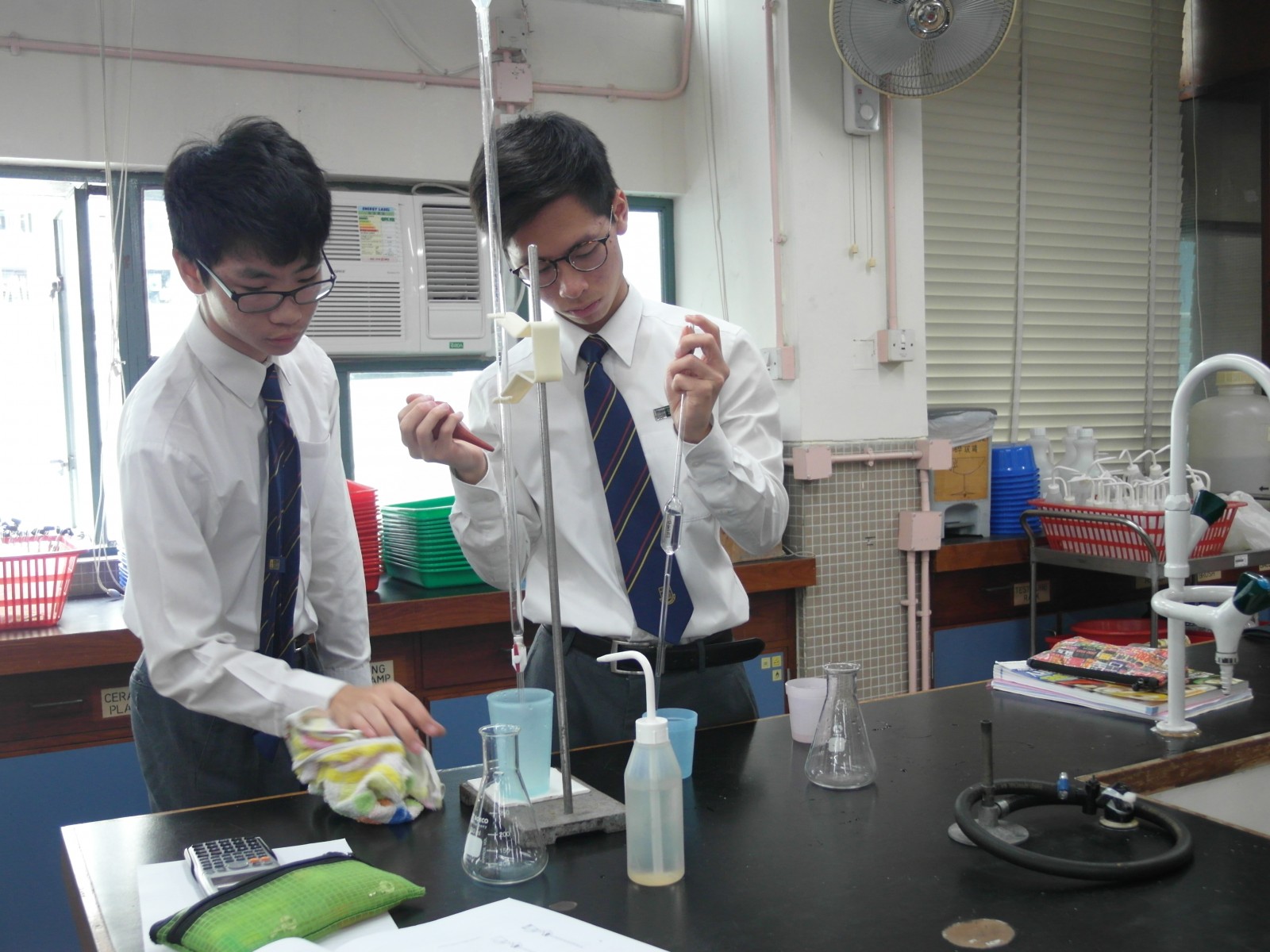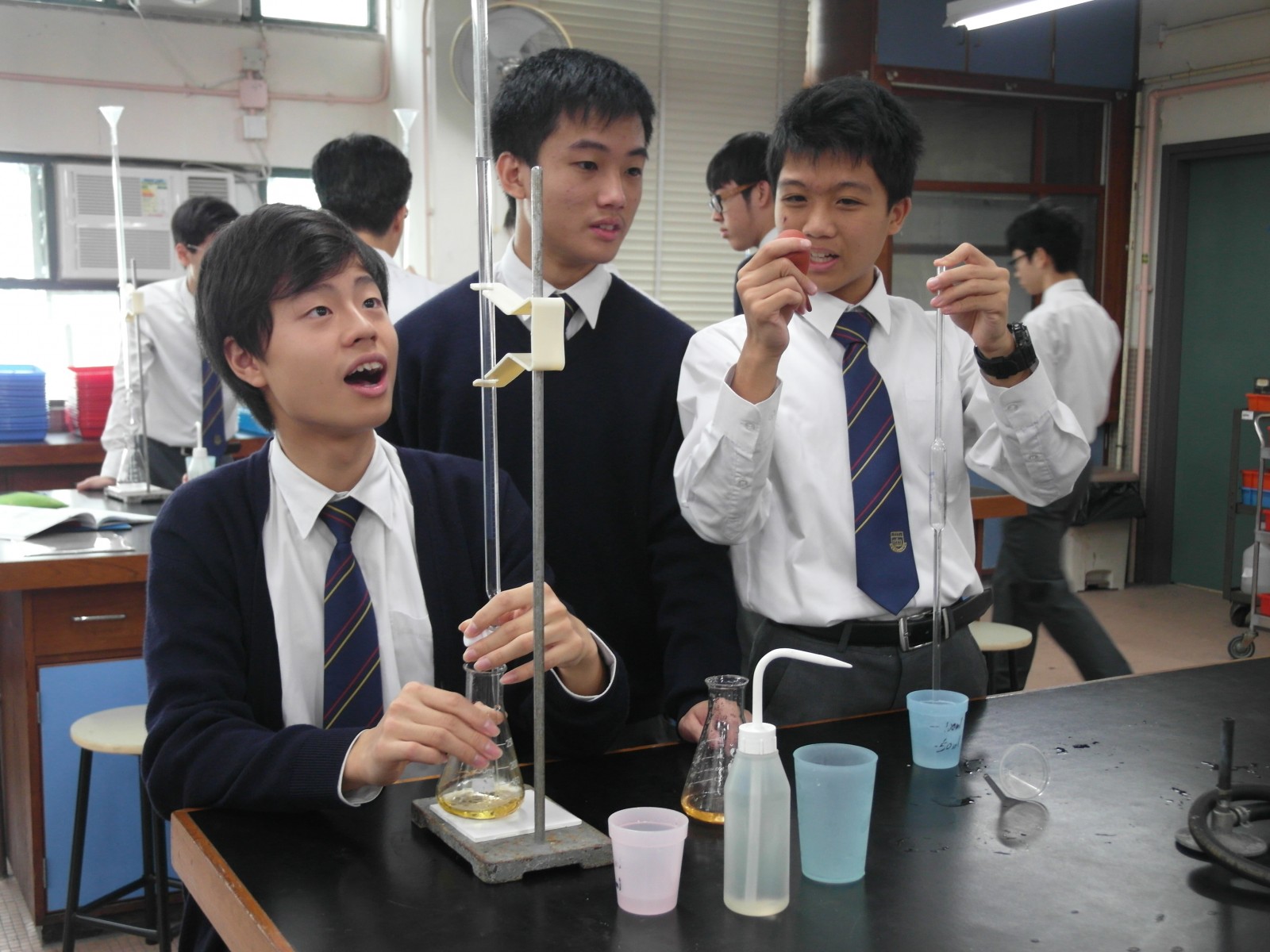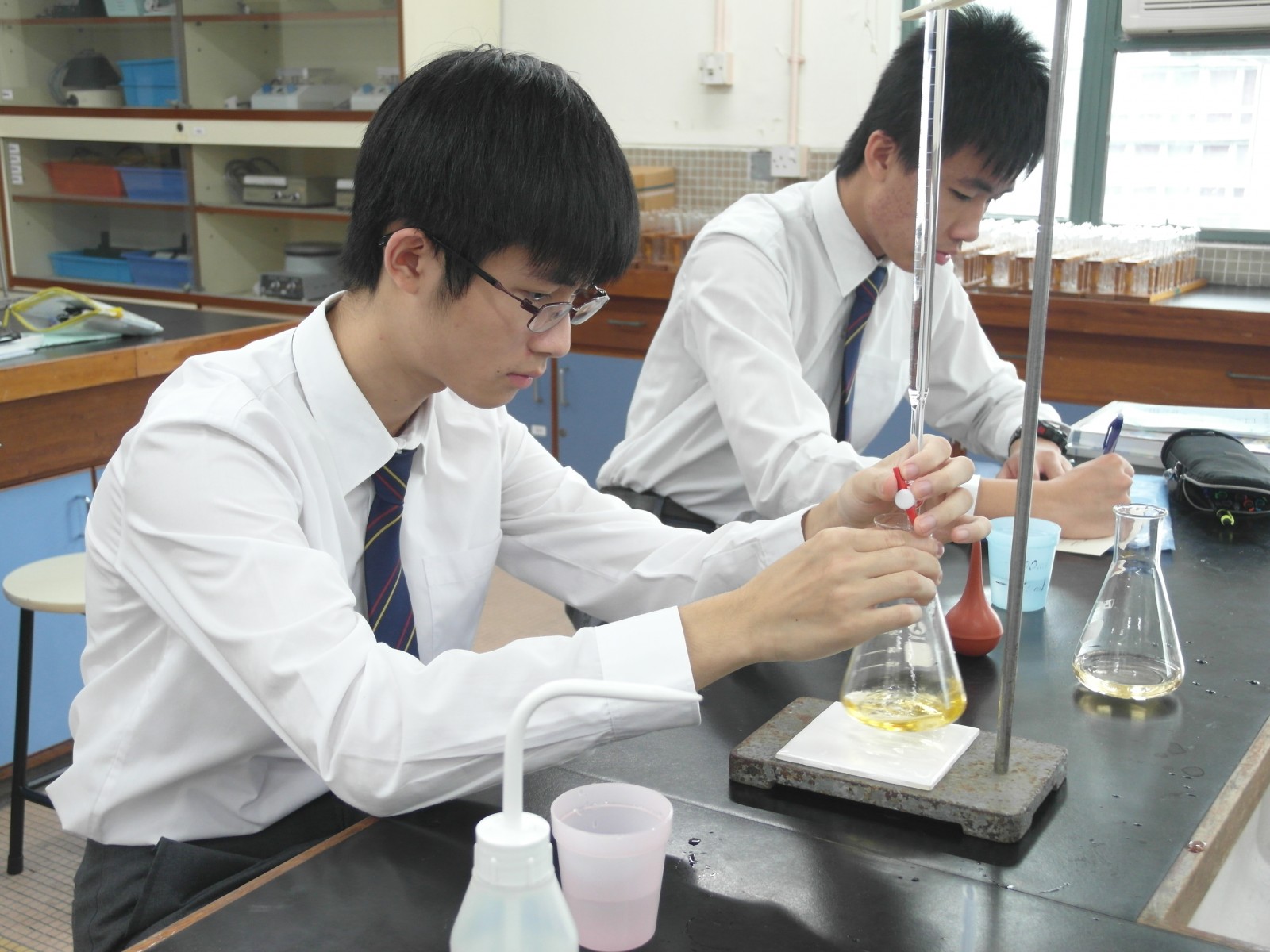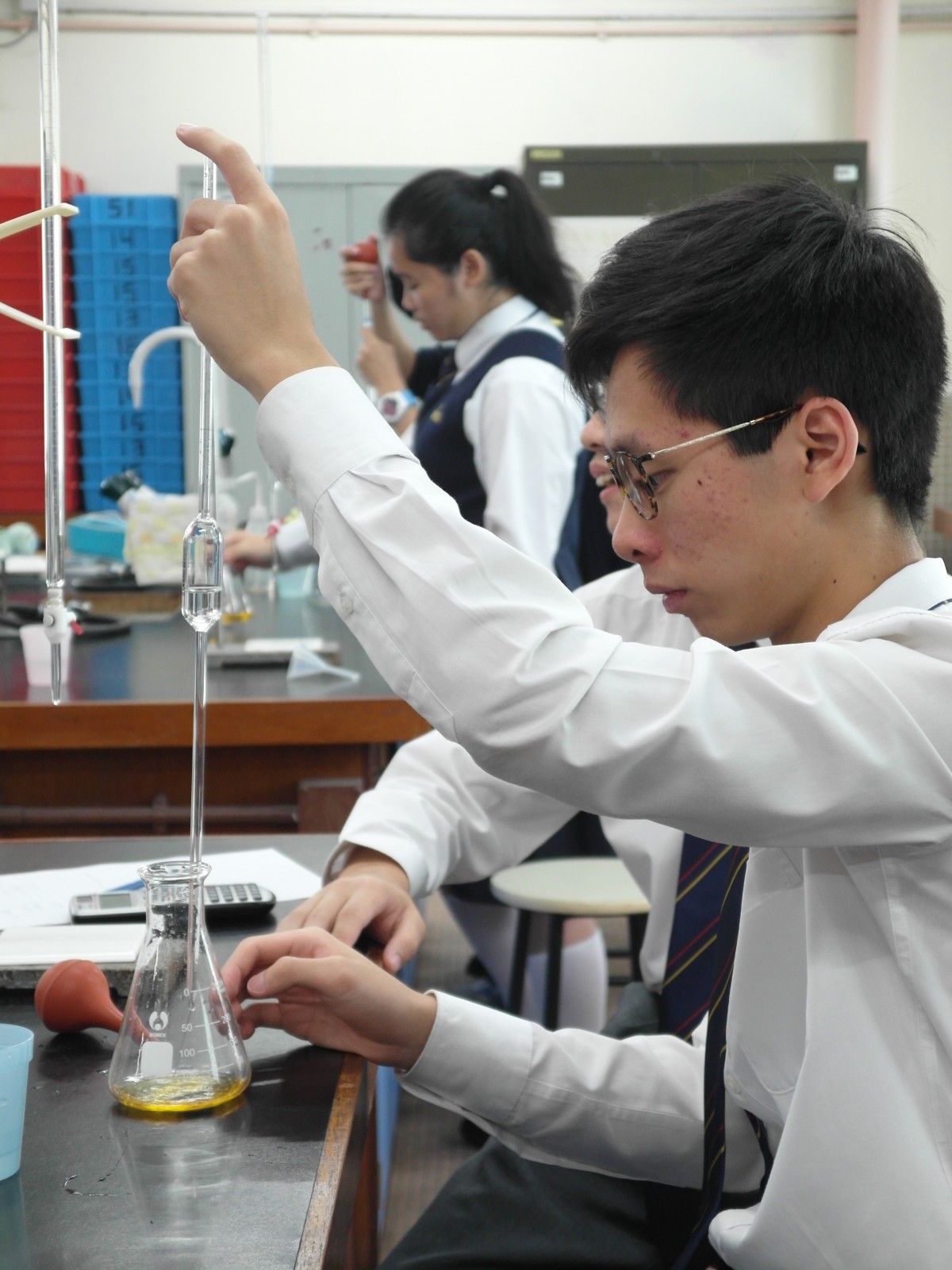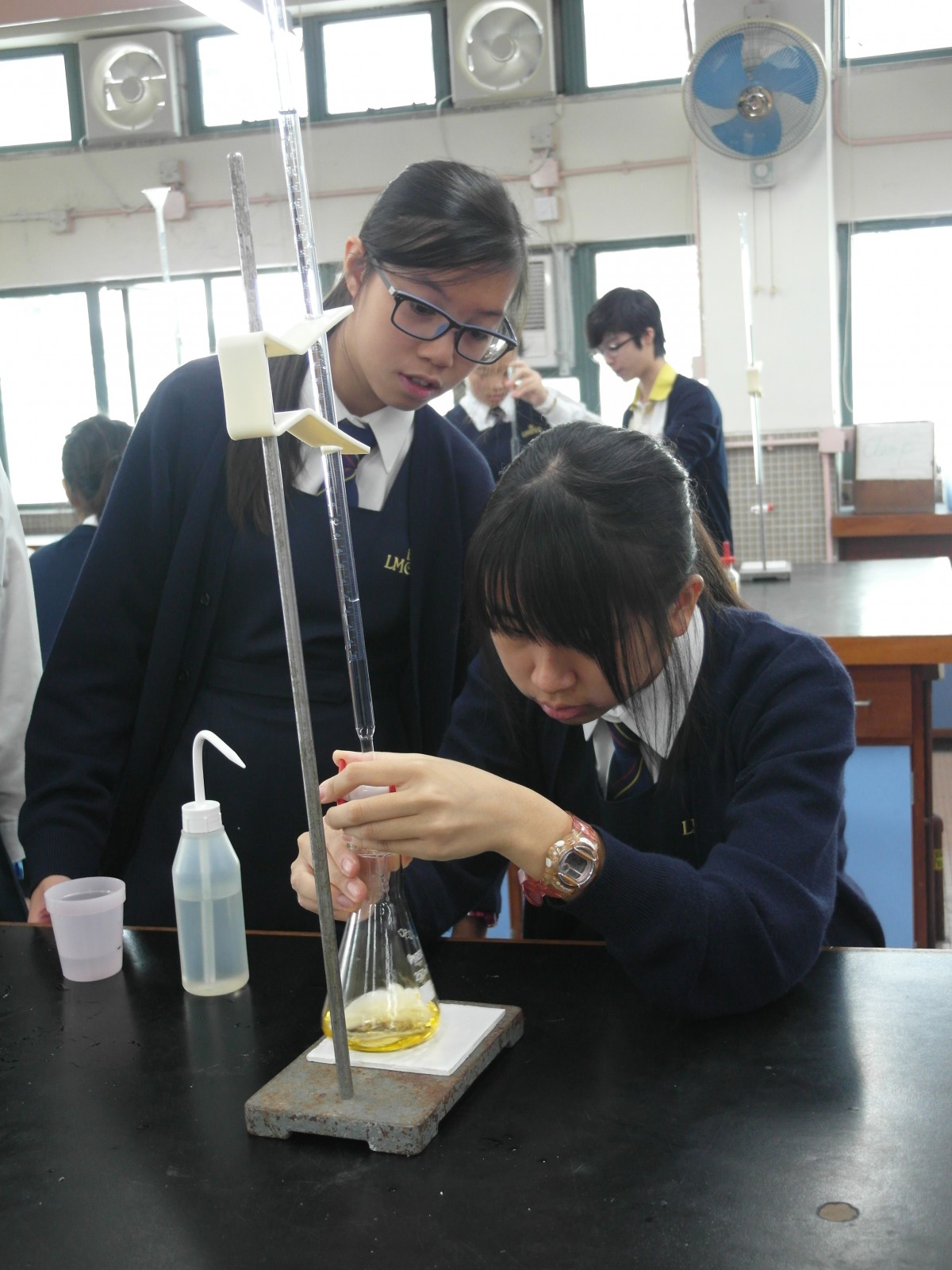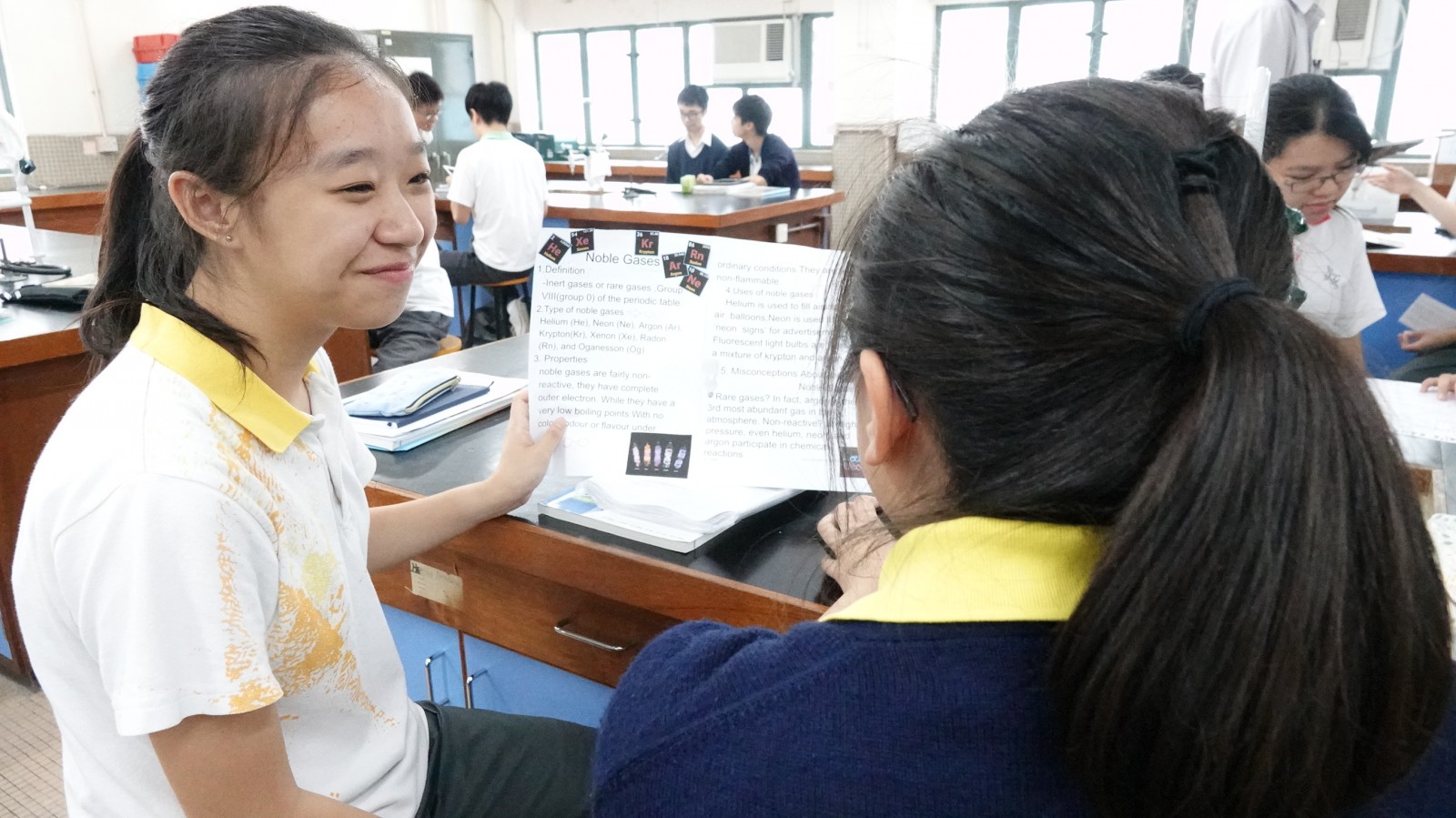Chemistry
Objectives
The overarching aim of the Chemistry Curriculum is to provide chemistry-related learning experiences for students to develop scientific literacy, so that they can take an active role in our rapidly changing knowledge-based society, prepare for further studies or careers in fields related to Chemistry, and become lifelong learners in science and technology.
The broad aims of the Curriculum are to enable students to:
- develop interests and maintain a sense of wonder and curiosity about Chemistry;
- construct and apply knowledge of Chemistry, and appreciate the relationship between Chemistry and other disciplines;
- appreciate and understand the evolutionary characteristics of science;
- develop skills for making scientific inquiries;
- develop the ability to think scientifically, critically and creatively, and solve problems individually and collaboratively in Chemistry-related contexts;
- discuss science-related issues using the language of Chemistry;
- make sound decisions and judgments on Chemistry-related issues;
- develop open-mindedness, objectivity and pro-activeness;
- show appropriate awareness of working safely;
- understand and evaluate the chemical implications on society, ethnicity, economy and technology, and develop an attitude of responsible citizenship.
Contents
Compulsory Part
I. Planet Earth
II. Microscopic world I
III. Metals
IV. Acids and bases
V. Fossil fuels and carbon compounds
VI. Microscopic world II
VII. Redox reactions, chemical cells and electrolysis
VIII. Chemical reactions and energy
IX. Rate of reaction
X. Chemical equilibrium
XI. Chemistry of carbon compounds
XII. Patterns in the chemical world
Elective Part
XIII. Industrial chemistry
XIV. Analytical chemistry
Features
(1) Reading to learn
Students can develop self-learning skills from reading. It further enables students to understand the past, present and future developments of various aspects of Chemistry.
(2) Practical activity
Chemistry is a practical subject. It is essential for students to gain personal experience through practical activities and investigation.
(3) Use of Information technology (IT) for interactive learning
IT provides an interactive environment for learners to control the learning process and contents.
(4) Comprehensive learning opportunities
Learning should not be restricted only in classrooms or within the school. The varied programmes we offer include popular science lectures, debates and forums, field trips, visits, invention games, science competitions, science projects and science exhibitions.

